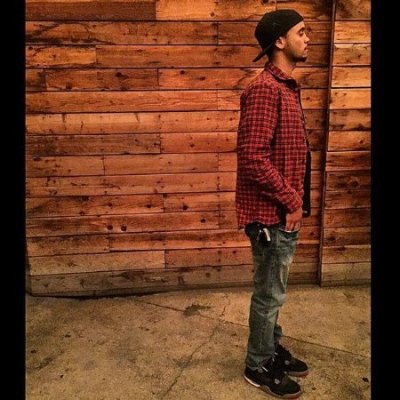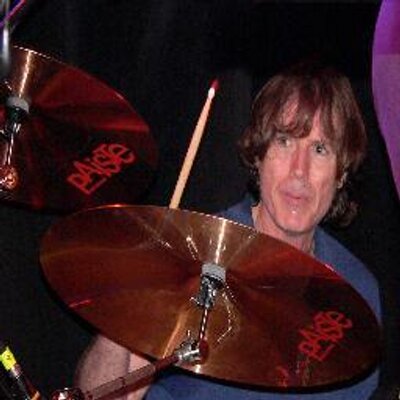Music Career Finder
Survey Start
A&R Coordinator

How To Become an A&R Coordinator
- Career Description
- Salary
- Career Outlook
- Career Path
- Experience & Skills
- Education & Training
- Additional Resources
- Sources
- References
Career Description
Andrew Corria is an A&R Coordinator at Aftermath Entertainment, where he worked on Dr. Dre’s Compton album. He says his job involves assisting “the executive A&R, doing daily tasks for him, finding artists and new talent, overseeing the [current musical] project, [finding] anything that would be a good fit for a song on it or on the label.
Everything from recruiting musical talent–whether it’s Producers, artists or musicians–to typing out the credits for each song with everyone’s publishing house and real name.”
We also spoke to Jody Stephens, who handles A&R and all types of the business side of Ardent Records.
A&R Coordinators work with Poster Artists, musicians, A&R Administrators, A&R Managers, the Director of A&R, Producers, Recording Engineers and Personal Managers.
Salary
The average annual salary for an A&R Coordinator is approximately $43,100. The salary range for A&R Coordinators extends from $36,000 to $68,000.
A&R Coordinators are salaried employees. Reported yearly incomes for this position can vary widely based on the size of the record label they work for, its budget, and the employee’s years in the industry.
Hey, what do you think about trying our new Music Career HelperMusic Career Helper really quick? It’s totally free and could help get your career moving fast! Give it a try. It’s totally free and you have nothing to lose.
Career Outlook
Where and when an A&R Coordinator works will depend on the day and where the project is in terms of completion. Corria says, “You don’t have to be in the office 9-5. It’s late nights in the studio, conference calls, meeting with certain Managers or artists or other executives. For someone who likes to get their eight or nine hours of sleep, it’s not for that person. It can be hectic sometimes for sure.”
Of the process of making the Compton album, he says, “I spent a few months at the office, then everyone met at the studio at night and [worked on] whatever tasks needed to be done. You’re always on. You have to go to the label when there are marketing people [visiting]. You have to meet another artist somewhere where they’re having a session. You’re all over the place.”
Career Path
The positions within a label’s A&R Department will vary based on the company’s size and budget. Many employees start off as Interns or in another sector of the music industry before moving into a role as an A&R Administrator, A&R Scout or A&R Coordinator.
After gaining experience and working with successful artists, this job could lead to a position as an A&R Manager, and possibly even to Director of A&R (or Head of A&R).
To gain the work experience, skills, and community network you’ll need to land a job, Corria recommends aspiring A&R Coordinators “try to get involved in any type of music scene in whatever area you are in–even if you can’t move to where the labels are–whether that’s working at a music venue, interning for someone who mines talent for a label, or working for your local radio station.
“Get involved with the local scene. Start making connections that way. Do the research, like I said earlier. Take it upon yourself to create the experience, however you can, with whatever’s around you. Try to find artists you think are talented and help them out. You never know what can happen.”
- “Start networking, whether it’s with artists or people they know who work in the industry side of things. Whether it’s through Twitter, Instagram, or LinkedIn, which is a very positive tool to connect with people.
- Do the research. Read about the business and the position. Be well versed in what you want to do.
- Create opportunities. At home I worked at my college radio station. I had an administrative position and my own show. I was putting on shows, working with artists, going to New York City, trying to meet with people and putting on events.
- You’re competing with a lot of people. You have to know what you’re doing and also you have to work harder than everyone else. Just think–when you’re busting your ass, there’s probably someone working twice as hard as you. It’s just one of those things. You really have to work at it. Just don’t give up and make sure you explore every avenue.”
Experience & Skills
Music industry experience is necessary to land a job in the very competitive field of A&R. But how do you gain experience when you’re just getting started in the business? Corria says, “I think a lot of the misconception is that you have to go find opportunity. But you also need to make opportunity wherever you can.
“As a young kid, I was like ‘I can’t move to California; I’m only sixteen. I’m just going to make my own experience while I’m still in school–and that’s what I did. And with the Internet, it’s real easy. I formed relationships with people who [became] really great friendships and helped me a lot.
“I was doing shows–bringing artists I thought were talented, who were ‘on the rise’ before the explosion–bringing them out to Providence or New York, putting things together and building relationships with these people. I met King Mez just by hitting him up online, saying ‘I like your music. You’re dope. Let’s do something.’ The Internet is kind of one of the best tools to set up and network with people.”
In fact, the work Corria did with King Mez led to him landing a job as A&R Coordinator at Aftermath.
He says, “I brought him [Mez] out to work with another artist and we built a relationship through that. I came out to LA and he was in Raleigh at the time. He ended up coming to work with some artists and Producers and he was crashing at my house. We were moving around and doing sessions. He got a call from two of my bosses now. (One is Ty Cannon, the head of A&R at Aftermath.)
“We got to the studios and began to network, built a relationship, and eventually, Ty was like ‘Dre’s album is going to come out. I’m going to need help. Do you want to work?’” To get experience, Corria suggests “working with other record companies. Try and do an internship through them.”
The biggest skill needed to be a successful A&R Coordinator, he says, is the ability “to see the potential in artists and Producers before they blow up. Beyond that, just to recognize talent, and understand how to deal with artists and creators.
It’s definitely a very important skill because you’re interacting with these people and everyone’s different. You’re there to get what you need from them and they’re there to get what they need from you. Make it a smooth relationship.”
Another vital skill is “knowing if [an artist] is marketable.”
It’s also important to “be well-rounded in music. The more you have to reference from, [the better]. I work in hip-hop so I feel my frame of reference is very large because I’ve been a fan of it since I was a kid. That helps a lot. [Knowing] what sticks and what doesn’t stick, what works and doesn’t work and what you feel will make an impact within the culture with fans and consumers.”
“You have to be a real good people person because you’re dealing with so many personalities,” Corria says. “As an A&R Coordinator you’re in the center of the communication web where you’re the buffer between the artist and the label or the Producer and the label or the Producer’s Manager or the Engineer.”
“You have to have really good communication skills and thick skin because sometimes you’re getting it from all angles; you’re hearing things from the label, you’re hearing things from your boss and you kind of have to smooth things out. You have to be a hard worker, a self-starter. You have to be someone who doesn’t mind losing sleep. Someone who will go the extra mile. ”
“You fly under the radar. You do a lot of work. You’re scouring beats with artists and Producers; you’re the person who put these people together, but you’re not going to get the press, so you have to be cool being behind-the-scenes.”
Education & Training
“Go to school and be educated,” Corria advises. “A lot of record labels like to have graduates with Communications, Business, and Marketing degrees. They kind of help you to get your foot in the door.”
He adds, “I’ve been noticing a lot of schools have been putting up music business programs. That seems really cool to me; it can give you the foundation and skills you need to know.”
The best training comes through being actively involved in the music scene, however.
Corria suggests “if you can do an internship, I say do it, but more than anything I’d say do your own research on the position and find out as much as you can. Take it upon yourself to work with artists in your networks, doing certain things like putting them on shows, tour managing, A&R work, getting Producers and whoever you can to work with those artists.”
Additional Resources
Although there are no professional organizations for A&R Coordinators, the Internet is a goldmine of resources for building a career.
Corria says, “SoundCloud is an awesome tool. I found Anderson Paak, an artist who’s one of the contributors on the Dre project on SoundCloud and some of the writers were really digging the song. They played it for Dre. He loved it, and now he’s on, I think, six songs. You’d be surprised how many record executives and talent agencies are on SoundCloud looking.”
He also recommends regularly checking out “music publications and blogs. It’s really about being diligent and doing the work online.”
Sources

Andrew Corria
Andrew Corria is an A&R Coordinator at RCA Records. He has also served as an Assistant A&R at Aftermath Records, where he worked as an A&R Coordinator on Dr. Dre’s Compton album.
His work on Dre’s Compton LP has been profiled on All Hip-Hop and HipHopDX.

Jody Stephens
Jody Stephens is an A&R Person and Manager at Ardent Music. He is also a Drummer who has played with Big Star, Golden Smog, Those Pretty Wrongs, The Lemon Twigs, and The Reputations.